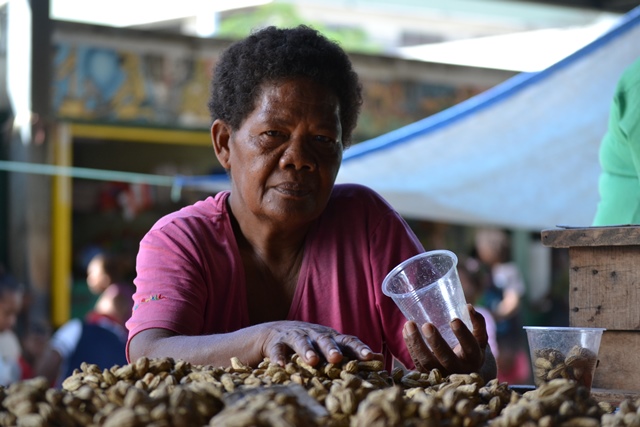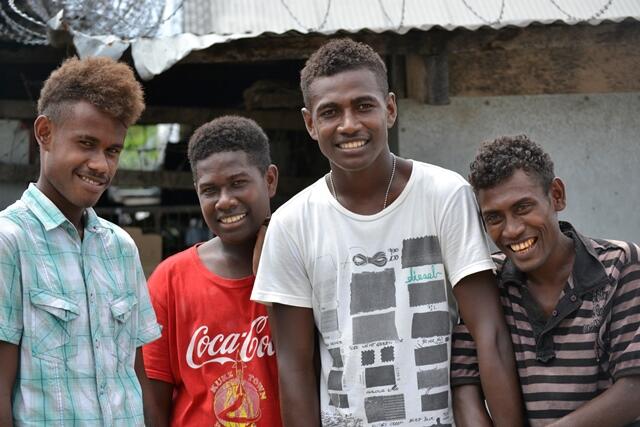THIS week is historical, not only in the development sector but for humanity as a whole but in particular in terms of concrete agreement that people are primarily responsible for the fundamental shift in climate patterns and therefore must take mitigating actions.
The Informal Plenary of the Post-2015 inter-governmental gathering reached agreement on the draft final outcome document that will be the global development goals and targets effective from January 1, 2016.
This document, which has been described as "the people's agenda" is the product of about three years of national consultation, regional negotiations, (the last) two weeks of ironing things out and last weekend, an intensive 72 hours of final consultation and passionate negotiations by teams representing the 193 member states of the United Nations, with full participation by civil society actors.
For United Nations Population Fund (UNFPA) colleagues based in New York, home of the General Assembly, the few sleepless nights was well worth the provisions of the Post-2015 Development Agenda aptly entitled Transforming Our World: The 2030 Agenda for Sustainable Development - the document is specific on organisational core mandates, strengthening our resolve to deliver a world where all pregnancies are wanted, all childbirths are safe and all young people's potential are fulfilled.
"It is an incredible milestone for humanity, an achievement for women and girls, for young people and their aspirations for a full realisation of demographic dividends by our island countries and sexual and reproductive health services and reproductive rights," Dr Laurent Zessler, the UNFPA Pacific Sub-Regional Office director and representative said.
"The UNFPA Pacific office acknowledges with gratitude the very hard work of our governments and meaningful and active engagement of the civil society, from national level to the negotiating tables last weekend."
The final text sets an agenda for the next 15 years of 17 sustainable development goals or SDGs with 169 targets - a culmination of multi-faceted conversations at various levels since the 2012 UN Conference on Sustainable Development; more than 150 world leaders are expected to converge in New York next month (September) to adopt it.
On the heels of the conclusion of the Millennium Development Goals (2000-2015) and the Program of Action of the International Conference on Population and Development (ICPD, 1994-2014), the new time-bound (2015-2030) agenda is ambitious but bold, it calls for an end of "business as usual" to ensure actual and transformative results, acknowledging the power and potential of advancing technology as an effective tool to accelerate global progress while recognising the need for strong economic foundation that is sustainable and considerate of the impact of climate change.
Commendable and unique in this set of development goals is the provision of the "how" of implementation - covering economic, social and environmental objectives apart from development priorities.
This document goes beyond development actions, addressing the fundamentals or root causes of societal ills people are grappling with today; its language is specific for women and girls, specific for the inequalities between and within countries and while provisions are universally applicable for all countries (as opposed to the MDGs' developed-states-to-developing-states approach) there is specificity in the maintenance of ones' sovereignty and how "the most vulnerable countries" including small island developing states "deserve special attention".
The SDGs are people-centred and planet-friendly; notable is the member states' commitment to completing objectives within some MDGs which were not met in entirety, and these include maternal and newborn health, and reproductive health targets.
The agenda revolves around five Ps - People (the eradication of poverty and hunger and to ensure that all persons can fulfil their potential in dignity and equality, in a healthy environment); Planet (provides for the protection of the planet from degradation including urgent action against climate change); Prosperity (provides that all must have prosperous and fulfilling lives based on a harmonious relationship between nature and economic, social and technological advances); Peace (the maintenance of peaceful, just and inclusive societies, free from fear and violence for development and peace are inextricably linked); and Partnership (commitment to ensuring the agenda will get the integrated approach involving all stakeholders that its realisation demands).
It may be prudent to note that while the SDGs inherit some unfinished business from the MDGs, the latter actually lessened extreme poverty rate in developing countries from 47 per cent in 1990 to 14 per cent in 2015; the primary school net enrolment rate in the developing regions increased from 83 per cent in 2000 to 91 per cent in 2015; 90 per cent of countries have more women in parliament albeit only one in five members is a woman; the global under-five mortality rate has dropped from 90 to 43 deaths per 1000 live births, between 1990 and 2015; since 1990, the maternal mortality has declined by 45 per cent worldwide and skilled health personnel-assisted births increased from 59 per cent in 1990 to more than 71 per cent by 2014; these are just some examples of how targeted and time-bound development frameworks can work - given there is a lot more to be done, and sustainable development for universal progress is a never-ending task whose urgency never really diminishes.
The new agenda has something for everyone and we can expect a healthy dose of cynicism but that almost 200 countries reached consensus over a framework with the supremely ambitious aim that "no one is left behind" is an incredible feat worth celebrating.
The Pacific can be proud of its role last weekend and the fact that we hosted the oft-cited (in the outcome document) Third International Conference on Small Island Developing States' (SIDS) which produced the S.A.M.O.A Declaration. Suffice to say, we must all make an effort to know the post-2015 agenda.
What may well be one of its best features is in its language: the human voice rings out clearly and strong, for lived human rights and dignity for all, everywhere.



